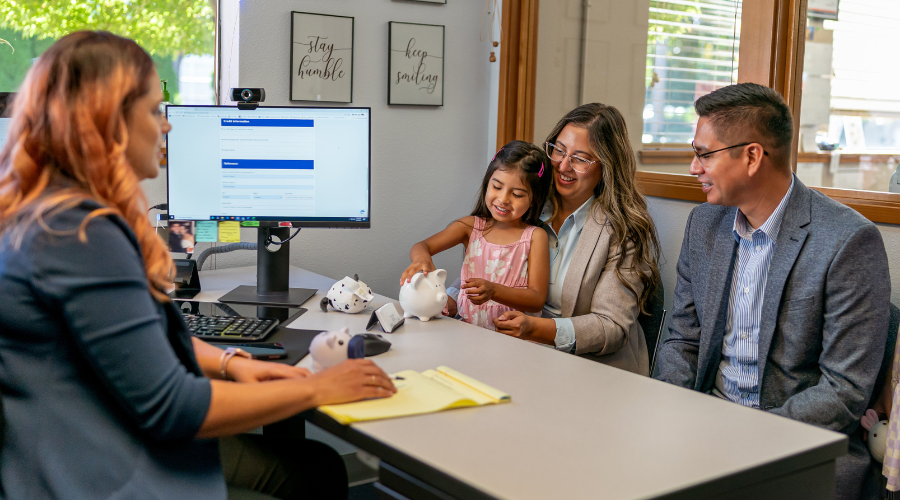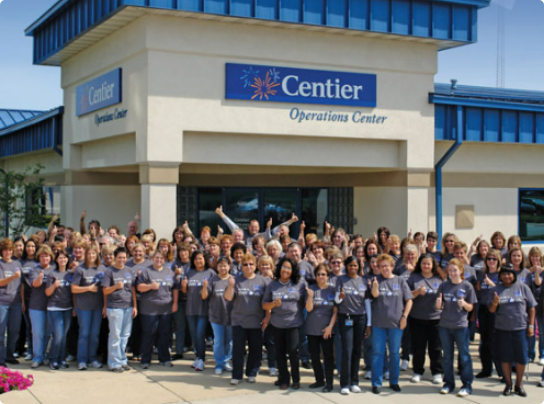What Will I Need To Open a Bank Account?
October 15, 2024

A bank account is a key element in financial management. In Indiana, 24.1% of households are either unbanked or underbanked.[1] This means that nearly a quarter of Indiana households rely on alternative financial services like check-cashing or payday loans instead of traditional banks, which often leads to higher costs and financial instability.
Whether you're new to banking or looking to switch banks, knowing what you'll need to get started is important. This guide will walk you through the essentials, from the required documents to choosing the right type of account. By the end, you'll be ready to open a bank account that meets your needs.
What You Need To Open a Bank Account
To open a bank account, you must provide specific documents and information. Banks require these to verify your identity and ensure you meet their eligibility criteria.
1. Personal Identification
When you open a bank account, the first document you’ll need is a form of personal identification.
This is typically a government-issued photo ID, such as a:
- Driver’s license.
- Passport.
- State identification card.
Some banks may allow alternative forms of ID, such as a military ID or a residence permit.
2. Proof of Address
In addition to personal identification, banks require proof of your current address.
Common documents that serve as proof of address include:
- Utility bills like electricity or water bills.
- Lease agreements.
- Mortgage statements.
Another official document that includes your name and address.
It’s important that the document is recent, usually within the last 30 to 60 days, to ensure your address information is up-to-date.
3. Social Security Number
Your Social Security number (SSN) plays a critical role in the account-opening process. Banks use your SSN to report your financial activity to the IRS and to perform a credit check if necessary. The SSN helps the bank verify your identity and ensure that you are eligible to open an account.
If you don’t have an SSN, some banks will accept an Individual Taxpayer Identification Number (ITIN) instead.
4. Initial Deposit
Finally, a deposit is usually required when you open a new bank account. This deposit serves as your first contribution to the account and may be necessary to activate it. The amount required can vary depending on the type of account you’re opening and the bank’s policies. Many checking accounts may require a minimum deposit of $25 to $100.
Decide What Type of Account To Open
The type of account you choose should align with your financial goals.
Here’s a quick overview of common options:
First, checking accounts are ideal for everyday transactions like paying bills and making purchases. They usually come with a debit card and checks for spending. Meanwhile, savings accounts are to save money and earn interest.
Next, MMAs and CDs are available for more complex needs. An MMA is a hybrid account that usually offers higher interest rates than savings accounts. Its spending capabilities are more limited than a checking account. In the meantime, CDs offer a fixed interest rate for a set period.
Find out if your money will be stuck in an MMA.
Choose Which Bank Is Right for You
When you choose your bank, consider: 
- Fees and charges.
- Interest rates.
- Customer service.
- Online and mobile banking.
First, look for banks with low fees. Consider costs for services like ATM withdrawals, overdrafts, and monthly maintenance. If you want to open a savings account, compare interest rates. Look at high-interest savings accounts for competitive rates.
Next, good customer service can make a big difference. So, choose a bank that’s known for helping its customers. Make sure your bank offers easy-to-use online banking and a mobile app.
Learn where to keep an emergency fund and how to get started.
Close Your Old Accounts if Necessary
If you’re switching banks, you’ll need to close your old accounts.
Before you do so, make sure:
- All outstanding checks have cleared.
- Direct deposits and automatic payments have been switched to your new account.
- Your old account has a zero balance.
Closing your old account(s) helps prevent unauthorized transactions and ensures a smooth transition to your new bank.
Recommended: Free How to Save Online Course and Tips at Centier To You
How To Open a Personal Checking Account
Opening a personal checking account is straightforward.
Follow these steps:
- Gather your documents.
- Apply online or in person.
- Make the initial deposit.
- Set up online banking.
Again, you’ll need photo identification, proof of address, and your SSN. Apply online or visit a branch location. Centier Bank has over 59 branch locations across Northern, Central, and Southern Indiana. Then, fill out the application with your details.
After you’re approved, make the initial deposit to activate your account. Once your account is open, set up your online banking to manage your finances from your computer or phone.
Be sure to set up any alerts you might need like low balance or overdraft notifications. And, get any and all direct deposits linked to your bank as soon as possible.
Do Centier accounts offer overdraft protection?
How To Open a Personal Savings Account
Opening a savings account is similar to opening a checking account. The difference is the account’s focus on saving money rather than everyday transactions.
Ask yourself:
- What are my savings goals: emergency fund, big purchase, or future needs?
- Which accounts offer the highest interest rates?
- Am I prepared to apply for the account and make my initial deposit to start saving?
Then, open the account in the same way you would a checking account. First, gather your documents and choose a bank. Next, apply and make your initial deposit.
Saving vs Investing: What's the Difference?
Open a Bank Account With Centier Today
A bank account is a significant step toward a bright financial future. When you understand what you need and your available options, you can make informed decisions. Whether you want to open a checking account for daily transactions or a savings account to grow your wealth, Centier offers a range of products to meet your needs.
Ready to get started? Open an account today or schedule an appointment with one of our financial experts.
Source:
[1] https://www.incontext.indiana.edu/2011/mar-apr/article1.asp
